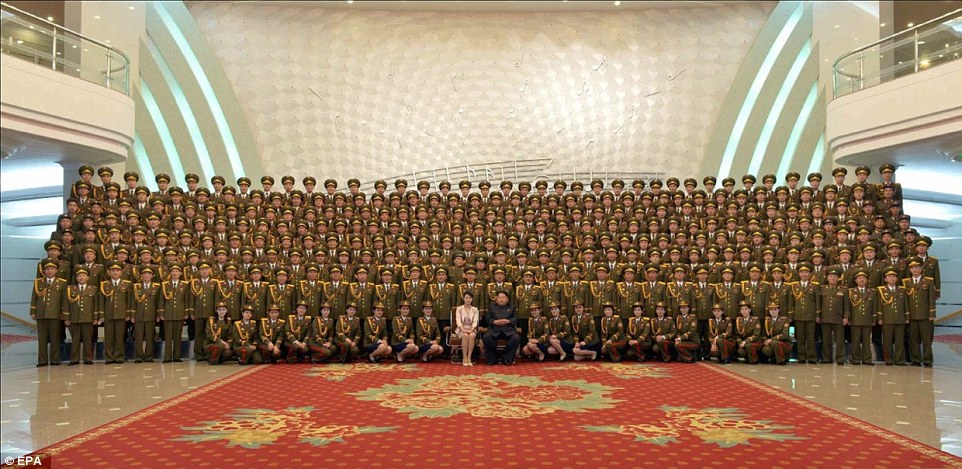-
Content Count
11,284 -
Joined
-
Last visited
-
Days Won
22
Content Type
Profiles
Forums
Calendar
Everything posted by Alpha Blondy
-
the tribal elder of Puntland Borqor D.a.rood meets with his Xhosa counterpart. lol i wonder what his travels achieved?
-
Somaliland vs. Tamil Eelam. the entire match.
-
<cite> @Apophis said:</cite> I wonder why you are still not committed. time.
-
i've decided to boycott this 18th May.
-

John Kerry sends a message of moderation inside a Mosque in Djbouti
Alpha Blondy replied to Holac's topic in General
this picture is offensive. John Kerry is a gaal. he shouldn't enter the sacred space of the muslim. nor should men or women be face to face inside the mosque. if anything, the women ought to be behind the men, not because they are inferior, but rather, separating the sexes preserves our chastity, and this is an important virtue in our religion. the face-2-face thing is not necessarily a bad thing...... but, if they wore black nijabs, it would have been more acceptable to purist like myself. balse this 'let's all sing kumbaya' photo opportunity doesn't not impress anyone. on the contrary, its actually quite disgusting. our masjids were once great hubs of wisdom and enlightenment, now they've been reduced to hosting 'politically correct get togethers'. certainly, this watered down ‘apoliticalisation’ of mosques in the greater Somali regions, is, indeed, testament to the ‘intelligently cosmetified’ moderate ‘islamisms’ being promoted and taking form there, these days. the masjids haven't been fulfilling their function as the centre of the muslim community for ages. here in hargeisa, they close their doors after the prayers. never do you see masjid open to the community. they are all privately owned spaces. the masjids ought to be more active in community outreach programs. change can only come from us. not from outsiders. -
it makes no sense. i've never understood why its called ''camel milk''. i think its meant to be symbolic, like a national dish oo kale.....you know how in America, each state, has its own unique flower, fruit or animal. camel milk is an aphrodisiac in this part of the world. its a very good cure for erectile dysfunction. this is why reer miyii folks have kids at 70 years. its also been known to treat various ailments and stuff.
-
caadi maaha.....
-
WHY REAL LEADERS DON'T CARE ABOUT TITLES OR FORMALITIES REAL LEADERS CAN INSPIRE DIVERSE TEAMS TO FACE REALITY, PROBLEM-SOLVE, AND CONTRIBUTE INNOVATIVE SOLUTIONS, NO MATTER WHAT. HERE'S HOW. BY DEAN WILLIAMS Leadership for a fractured world is a complex topic, and no single theory can do it justice. Traditional leadership that relies on prominence ("look to me"), dominance ("listen to me"), and tribalizing ("follow me") to get things done isn’t working anymore. Instead the best leaders are global change agents; they’re men and women who can act with or without formal positional authority to mobilize diverse factions to face reality, participate in interdependent problem solving, and contribute to innovative solutions with focus and speed. The outdated leadership modal emphasizes operating within boundaries—these leaders protect and manage boundaries. But global change agents, true leaders, aren’t afraid to cross boundaries, bust boundaries, transcend boundaries, and build bridges. Here’s what that looks like: CROSSING BOUNDARIES Interdependent problems necessitate that multiple groups in a social system be mobilized since problems can’t be brought to resolution by one group acting alone or in isolation. True leaders, then, must cross the cultural, gender, geographic, structural, and professional boundaries that separate people and groups. I recently met with some managers of a large, multinational Silicon Valley IT company. They explained how a group of senior managers in the headquarters were reluctant to cross boundaries and connect with important regional and international offices to include them in important problem-solving processes. Protecting turf and resources had become more important to them than promoting interdependent problem solving. BUSTING BOUNDARIES True leaders must intervene to break up maladaptive practices and counterproductive boundaries that perpetuate silos and tribalism. Groups by nature are tribal and seek to preserve their prevailing boundaries, even at the expense of facing reality and adapting to changed conditions. Boundaries play an important function in protecting groups and sustaining a group culture, but they become impediments when they reduce the flow of information and resources and keep people from facing changed conditions, dealing with threats, and taking advantage of unique and emerging opportunities. In 2014 General Motors CEO Mary Barra was called before Congress to explain how a faulty ignition switch led to numerous accidents and more than 2.6 million vehicles being recalled. She made reference to an independent analysis, which revealed that GM had serious cultural flaws such as the withholding of and even the distortion of information, not to mention the "GM nod" and the "GM salute." The "nod" was used by managers to indicate they agreed there was a problem but there would be no intention to follow through. The "salute" was the crossing of the arms followed by a finger pointing outward to divert responsibility elsewhere. People hid behind their boundaries and perpetuated counterproductive behaviors. These practices threatened the company’s credibility, profitability, and customer safety. There was insufficient change-agent leadership at all levels of the organization to call attention to the maladaptive practices and bust the boundaries that had produced the errors. TRANSCENDING BOUNDARIES Real leaders know how to help people leave the safety and confines of their home boundary and embark on an adventure of discovery—the discovery of new solutions and opportunities. The adventure might require going into the great unknown in search of creativity and innovation through the engagement of diverse people and groups. Diversity of perspectives, experience, style, and culture can be a rich resource for the promotion of creative problem solving. But harnessing the power of diversity is problematic. The default behavior of groups is fundamentally tribal, as people generally prefer their own kind and find it difficult interacting with those who are significantly different—it takes effort. The global change agent, like an alchemist, approaches the challenge by experimenting to discover what the appropriate mix of diversity might be in order to generate a breakthrough result. BUILDING BRIDGES It’s vital that leaders reduce the mystery or enmity between groups on behalf of a shared sense of purpose. Humans are fragile creatures, but also competitive creatures. Our feelings easily get hurt, and we often enjoy political game playing and the creation of coalitions to advance our own interests, sometimes at the expense of others. This game playing leads to fractures in groups and organizations—deep divides and hairline fractures that can expand at any time—where people refuse to collaborate and actively sabotage the intentions of others. The change agent helps groups build bridges of trust and understanding, reduce the mystery of who they are for one another, and establish a connection that opens up a new possibility for shared accomplishment. This is what Henry Kissinger and President Richard Nixon did in 1972 when they visited China and started the bridge-building process that led to a significant thawing of, and eventual end to, the Cold War relationship that did little good for either country. Becoming a global change agent is not easy, but it is essential work that companies must encourage and nurture. They neglect this work at their own peril. —Dean Williams is the author of the newly released book Leadership for a Fractured World and teaches leadership at the Harvard Kennedy School of Government. ----- http://www.fastcompany.com/3044562/why-real-leaders-dont-care-about-titles-or-formalities
-
this thread has died by the looks of it. oh i how i miss the old days when we'd troll the entire night. lol.
-
walking on a dream y'all.
-

Return of the quirky Somali diasporans - By Hamza Mohamed
Alpha Blondy replied to Admin's topic in General
^ yeah. he works for Al Jazeera brov. most of what he writes is simplistic. funny little article though. -
she'd be taken more seriously if she were remove the hijab. it looks a little silly wearing a Velcro hijab, if you ask me. makes the whole thing seem like some poorly thought-out integration gimmick. other than that, she'd be better off married and raising children instead of tackling criminals. policing is not the work of women. our women deserve better than this. they are our mothers, sisters and daughters.
-
nice pics salaax. glad to see you're doing positive things.
-
on behalf of the Somaliland people and Government, i would like to extend our deepest sympathies to Armenian people in marking the 100th anniversary of the genocide. our thoughts are with you.
-
A small country but a big nation: how genocide shaped the Armenia of today. As Armenians mark the beginning of violence that left 1.5 million dead......... In the beginning you hardly notice them: little lapel buttons in purple, yellow and black to mourn the dead and a lost homeland. But then there are the posters, T-shirts, umbrellas, bumper stickers, even cakes, all bearing the same forget-me-not flower designed to commemorate the tragedy of a nation. It is the symbol of the centenary of the Armenian genocide of 1915, being marked this week in solemn ceremonies in Yerevan and wherever in the world this ancient people fled in the wake of the mass atrocities suffered in the dying days of the Ottoman empire. This newly invented tradition, a poppy-like throwback to the killing fields of eastern Anatolia, has triggered complaints about commercialisation. But it has caught on. Across Armenia, in schools and homes, and as far away as the diaspora community of Glendale, California, children have picked up crayons and scissors to make their own paper flowers or have planted the real thing in remembrance of the horrors that beset their forebears. READ MORE HERE: http://www.theguardian.com/world/2015/apr/22/turkish-silence-fans-century-of-armenian-grief-over-genocide --------- tomorrow a group of us will be marking the centennial anniversary of the genocide outside the Turkish Consulate in Hargeisa. what can we as Somalis learn from this?
-
that's what i'm saying.....
-
we need spacing between the children. not necessarily less children. its serious problem when two kids are cramped into a year, so that a Somali woman begets 6 kids in like 4.5 years. i would like to have up to 5 kids spaced out. 3 boys and 2 girls. there's really no excuse for all these feral wildlings roaming the streets. our deen also encourages family planning. so people ought to take heed.
-
i really liked this particular post of Safia Aidid. the way the article was written was very informative, aimed at non-academic folks, like Alpha, unlike some of her previous materials which was very inaccessible. i particularly enjoyed the way she pinpointed Richard Burton's innate arrogant caadaan mindset. brilliant. Safia aka Safferz, you need to make your materials more accessible, please. by the way i'm your biggest fan, i hope we can meet again and be friends. i feel like you need a seasoned manager, who could potentially guide you in conquering the world. 2016! here we go y'all.
-
^nonsense. by the way have you heard about the three-legged donkey in Burao. i heard it the other day and its funny walahi. so much hype surrounding this donkey.
-
a bit of the Africa Century Mantra at Africa House, Hargeisa, Somaliland.
-
maybe its time to stop giving these interviews, walashay? self-preservation is a virtue. loool. how did you go from this #caadanstudies to discussing Al-Shabab, when you're a radical feminist theorist. create value through scarcity. being the attention fiend that you are, i wouldn't be surprised if you jumped on the animal rights bandwagon next or pursued a pop music career to have a sell-out tour in Slovenia, Denmark etc.
-
Popular Contributors



